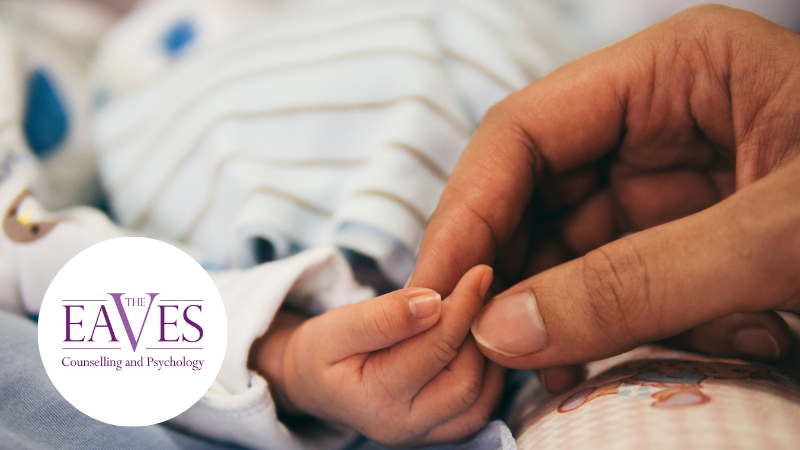Mental Health for New Parents
By Sarah Hackett, Student on Placement at The Eaves
The arrival of a new baby is a major life event for any family. It can be joyful, exciting, overwhelming and challenging all at once. In addition to the expected ups and downs connected with becoming a parent, many people experience mental health issues, too.
Becoming a new parent
After giving birth, your priorities change. You change. Different issues take precedence at different stages of your life. Life with a newborn is worlds away from a child-free life, and life with a teenager is worlds away from life with a newborn. Whereas your main concern before having children might have been how to climb the corporate ladder, your most urgent thought after giving birth might be how to do both—climb the ladder and be an involved parent—or even how to step off the ladder completely. The person you were then is not the person you are now.
According to a report carried out by HealthWatch* in September 2019:
· One in four women have experience mental health issues in pregnancy and during the 24 months after giving birth
· The most common mental health issues experienced during pregnancy and after birth are anxiety, depression and post-traumatic stress disorder
· In the UK, maternal suicide is the leading cause of direct deaths occurring within a year after the end of pregnancy
Many mental health issues can occur during or after pregnancy. These include pre and postnatal depression, perinatal OCD, postpartum psychosis and postpartum PTSD, amongst others. And not just mums – dads’ mental health can suffer too.
How can a newborn impact your mental health?
Sleep deprivation can increase your stress hormones, impair your ability to think clearly and affect how you regulate your emotions.
For some people, that might mean having a little less energy or enthusiasm or getting upset a little more easily. But for plenty of others, it can be a tipping point toward major depression or an anxiety disorder.
Since we tend to be more restless when we are feeling negative, we can end up getting hurled into a vicious cycle resulting in poor sleep. Evidence shows** that sleep deprivation and lower sleep quality play a role in the development of postpartum psychiatric disorders — and the worse a new parent’s sleep is, the greater their risk might be.
Women with postpartum depression (PPD) sleep about 80 fewer minutes a night compared to those without PPD. And infants of depressed mothers tend to sleep worse themselves*— making it even harder for parents to get the sleep they so desperately need.
But you don’t have to give birth to be at heightened risk for serious mood issues when you have a newborn.
Studies show** that new fathers report just as much sleep disturbance and fatigue as new mothers. And since fathers or partners who don’t give birth often tend to return to work sooner, any chance of sneaking in a short nap during the day ends up going out the window.
When to seek help
No one feels like themselves right after having a baby. Some people don’t feel like themselves for months and months. That’s partly from feeling very tired, but it also just comes with the territory of navigating a major life change. But there’s a point where the typical not-feeling-like-yourself that comes with having a baby morph into something more serious.
If you find yourself feeling very low, or are having thoughts that are difficult to deal with and are impacting your day-to-day life, then seek further help. The Eaves offer sessions with qualified, professional therapists either online or in one of our practices in Guildford, Farnham and Godalming, Surrey. They see individuals of all ages, families, couples and young people 12 hours a day, Monday to Saturday between 9am and 9pm. Please call 01483 917000 to speak to a member of the referrals team. You can also send us an enquiry via our website. Click here to find out more.
References
* https://www.healthwatch.co.uk/report/2019-09-09/mental-health-and-journey-parenthood
** TUGWELL, F., 2021. An Anthropological Investigation into the Complex Nexus of Maternal Sleep and Postpartum Depression (Doctoral dissertation, Durham University).

